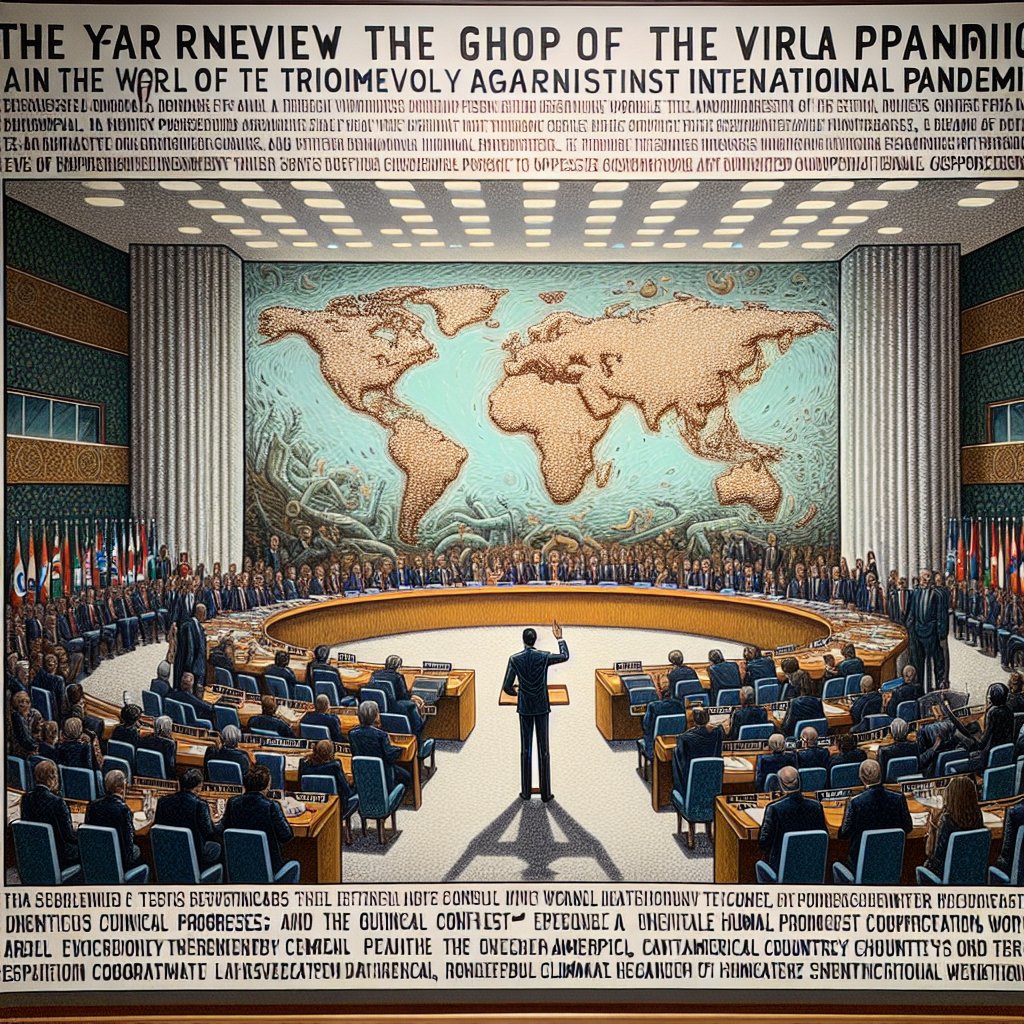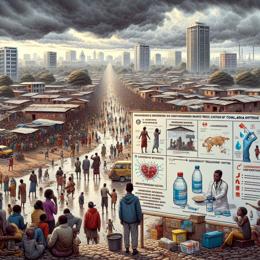Content created by AI
WHO Director-General Advocates for Historic Pandemic Agreement Amid Global Health Challenges
In a broad and strategic call to arms, World Health Organization (WHO) director-general Tedros Adhanom Ghebreyesus has implored the world to unite against the specter of future pandemics. The director-general’s end-of-year message encapsulated a dual narrative of significant medial advances and extensive human suffering that highlighted the need for an improved global response mechanism.
Ghebreyesus’s review of 2023 reveals a year of contrast where notable victories in public health intersected with devastating conflicts and the continuing challenge of climate change. The WHO leader celebrated the downgrading of Covid-19 from an international public health emergency, a relief for a world that endured unprecedented disruption over the past three years.
This turning point has unfolded against the backdrop of medical breakthroughs, with WHO approvals of new vaccines for malaria, dengue, and meningitis, and triumphant announcements of nations like Azerbaijan, Belize, and Tajikistan achieving malaria-free status. These milestones contribute to a narrative of progress and potential that the WHO seeks to maintain and expand.
Climate change, an ever-looming threat to global health, was also a prominent theme at the United Nations climate conference, COP28. Ghebreyesus noted that the connection between the environment and human health cannot be overstated and warrants significant attention and action.
Amid advancements, Ghebreyesus also pointed to areas plunged into turmoil, particularly the Gaza Strip. The harrowing aftermath of conflict there, following attacks between Hamas and Israel, brought about grave civilian casualties and sparked an urgent humanitarian crisis. He criticized the gap between the dire needs of the Gazan people and the inadequate relief efforts currently in place, calling for an immediate ceasefire.
Furthermore, the resurgence of cholera across the globe underscores the fragile state of international health and pandemic responsiveness. With more than 40 outbreaks, the spike in cholera cases is yet another indicator that global coordination and preparedness require bolstering.
As the WHO heralds its 75th year, Ghebreyesus remains acutely aware of the vulnerabilities that exist in emergency response mechanisms and understands the profound responsibility that lies ahead. He views 2024 as the threshold for unprecedented global action, with the negotiation of the first global agreement on pandemic threats.
The envisioned pandemic accord promises to be a cornerstone document, laying the groundwork for enhanced global collaboration, cooperation, and equity. Such an agreement, according to Ghebreyesus, is essential to ensuring that the tragic losses and hardships endured during the Covid-19 pandemic lead to lasting and meaningful change in how the world confronts and manages impending healthcare emergencies.
As nations grapple with their responsibilities and capabilities in preventing future pandemics, the WHO’s call for a binding and comprehensive agreement stands as a testament to the imperative of collective action. Ghebreyesus’s appeal emphasizes that only by working together can nations hope to mitigate the risk and impact of large-scale health crises that know no borders.




